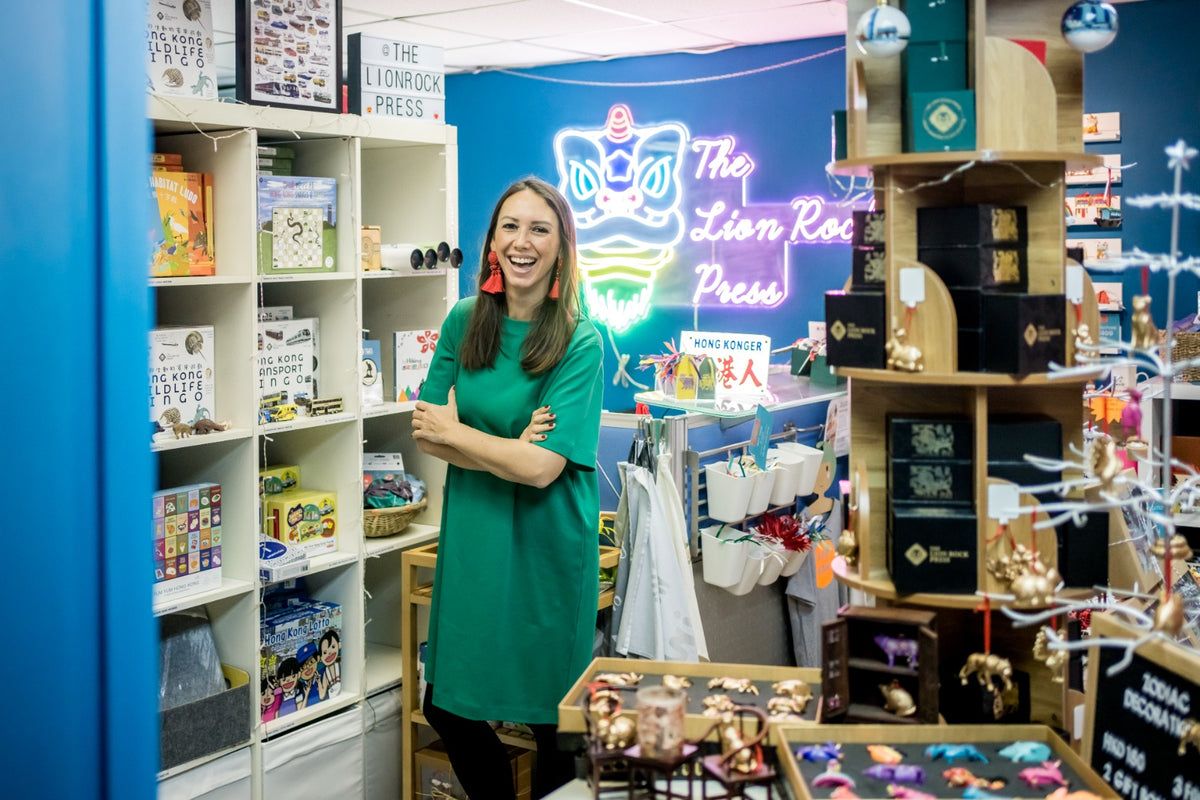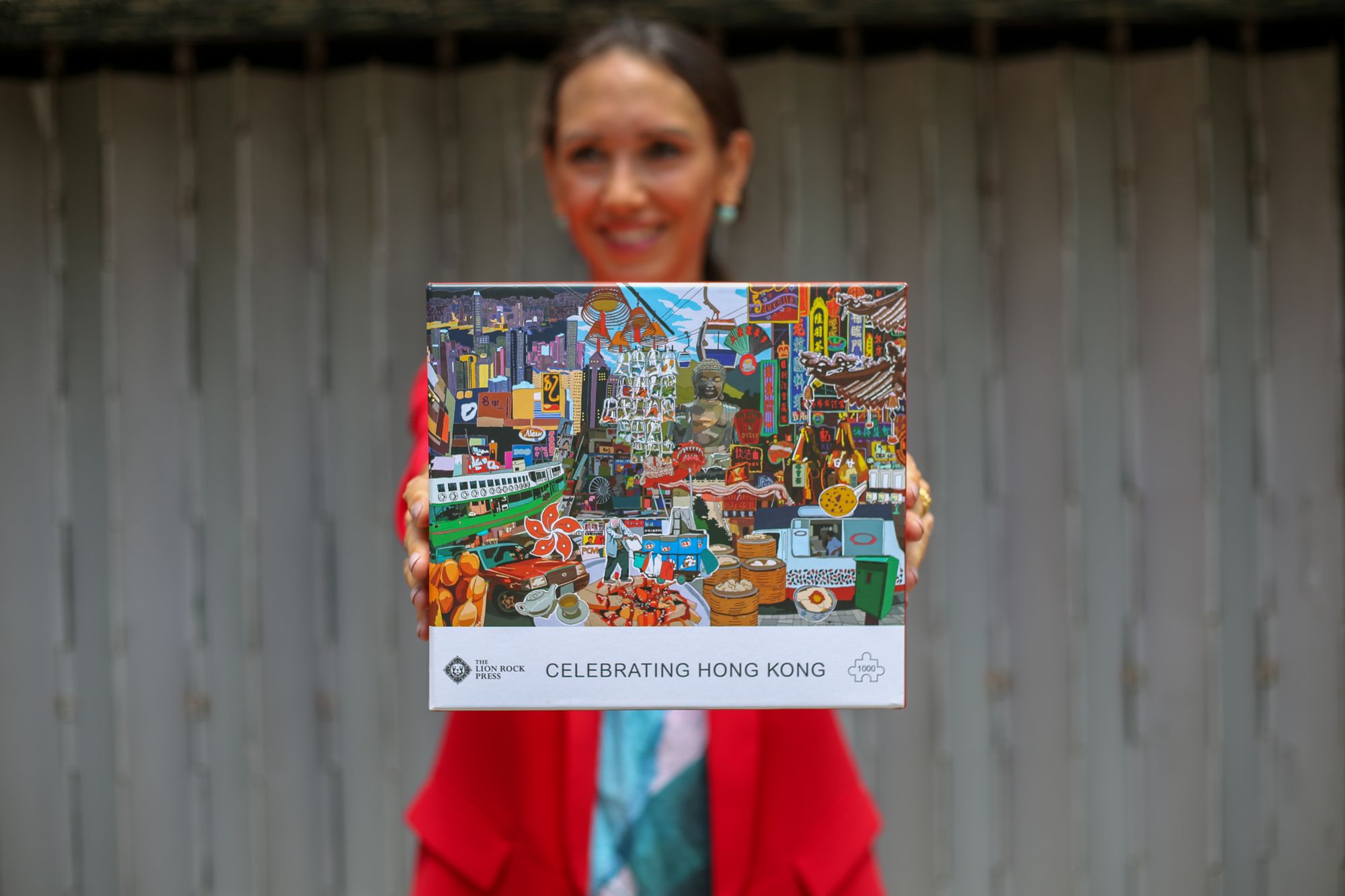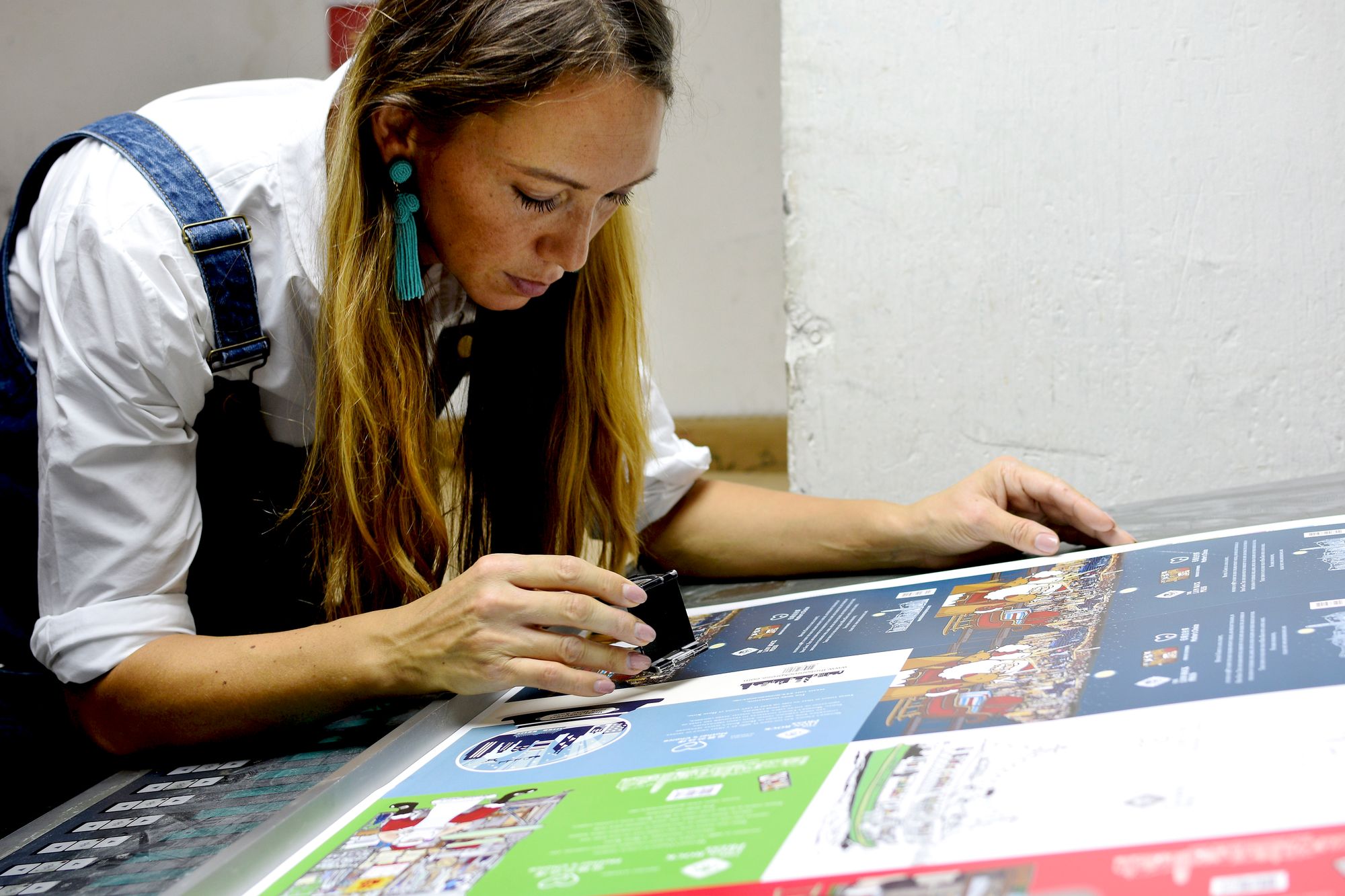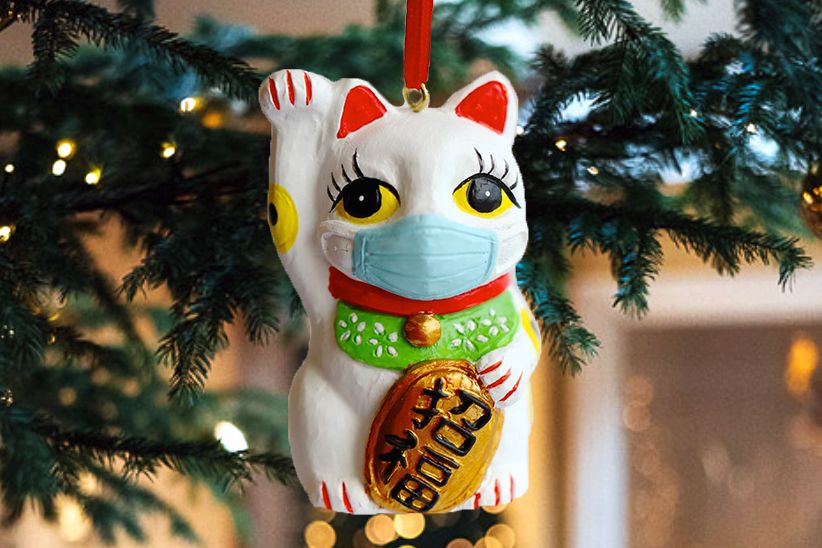All in the family – our interview with the founder of The Lion Rock Press, Claire Yates
Paying homage to the lion rock spirit that Hong Kongers are proud of and taking the strong qualities of the lion and the rock, The Lion Rock Press has been creating high-quality stationery products in the city for the past 10 years.

A few minutes every morning is all you need.
Stay up to date on the world's Headlines and Human Stories. It's fun, it's factual, it's fluff-free.
The Lion Rock Press – what a name that strikes a chord among Hong Kongers. Paying homage to the lion rock spirit that Hong Kongers are proud of and taking the strong qualities of the lion and the rock, The Lion Rock Press has been creating high-quality stationery products in the city for the past 10 years. But, it stems from a family business that goes back almost 120 years, when Lion Rock founder Claire Yates' great-grandfather started their family paper business.
Over the years, it became a family passion, with everyone getting involved– from Yates' grandmother hand-packing and wrapping each greeting card in her Mid-Levels home to Yates' uncle doing deliveries and helping with the production side of the business. As Yates explains, "Family is absolutely the key to our success."
The Lion Rock's three core values are authenticity, sustainability and customer service, and they try to deliver all three with every product. This is all thanks to the company's dedicated staff, which grew from only two people 18 months ago to a team of 12 people working diligently behind the scenes these days.
TMS sat down with Yates to chat about her background – especially how her English and Hong Kong mixed upbringing inspires the Lion Rock's process – as well as the company's mission and journey so far.
Q: Could you give us a brief introduction of yourself and The Lion Rock Press?

A: Sure, my name is Claire Yates, and we're actually celebrating the tenth anniversary of the Lion Rock Press this year. So we are a premium stationery and gift emporium, and our USP [unique selling proposition] is that all of our products are inspired by Hong Kong.
Q: On your website, you've mentioned your multicultural background influencing your product. Can you tell me more about that?
A: Sure. Actually, that's the thing that's at the absolute cornerstone of the business. Being Eurasian, my mother is Hong Kong/Chinese, and my father is English. And that informs everything that we do at the Lion Rock Press because the fusion of East and West is just a really interesting juxtaposition, and it makes for really cool and very playful ways to help people to understand the differences – but also how we're the same. And we've really enjoyed playing with that through the medium of all of our products.
Q: When we talk about the different parts of our identity, some people talk about "not being British enough" or "not being Hong Kong enough." Have you ever been in that position before? And how have you overcome it?
A: I've been incredibly lucky to have enjoyed both sides of these cultures so much. And I think in terms of Hong Kong and building the business, what I really noticed about the new generation of Hong Kongers is that so many of them, who especially born after '97, they didn't identify, as you know, with that kind of colonial handover. Then, they didn't identify necessarily with an ethnicity of being Chinese, and they really identified with being Hong Kongers. And I think that really inspired me that this whole generation of people really identified strongly with where they're from and the actual essence of the place being a Hong Konger – what does that mean?
And I've really enjoyed exploring that through the medium of our products. It's been amazing to see how much pride people have in being Hong Kongers because that's what unites everybody. You know, it's not necessarily ethnicity, or it's not necessarily any of those other things that are so much part of our identity. But, you know, being a Hong Konger really unites everybody who lives and loves Hong Kong. So I think that's why people have responded so positively to the products, and they've really kind of taken them in the spirit that they are intended. So that's been great.

Q: And a bit more about the charity work – do you donate every year?
A: Yeah, so every year, we have certain charities that we donate to year on year. So, for example, this year, we're celebrating 10 years of supporting Mother's Choice, and we're hoping to surpass half a million Hong Kong dollars by the end of this year. So we donate 100% of the profits from our charity Christmas collection to Mother's Choice. I chose this charity originally because I had just become a mother myself, and it really spoke to me. I felt that I was in such a fortunate position, and there were so many vulnerable women and children in the city who didn't have what I had. I felt really compelled to give back in some way, and that's been a really amazing partnership because I've got to see in real-time what the money that we raise goes towards. And our customers have got to share in that with us. So that's been an amazing, amazing journey.
And then, every year, we also support Box of Hope. So, we're the print sponsors for Box of Hope as well. So we print all of the posters and the stickers, and we consulted all of the designs for that. And we also donate in kind, you know, products and things like that. So we also give our time for the box checking. So Box of Hope has been a consistent partner as well.
And then we've done lots of really amazing and fascinating charity work. One of my favorites last year was we donated some money to the Hong Kong Biodiversity Museum in Hong Kong University to restore some damaged specimens. We restored, I think it was six damaged specimens, including a Chinese salamander and a pangolin and an East Asian porcupine. And the animals that appear on our products, the museum had these specimens donated to them. They weren't in good condition, and it's very, very expensive to restore them because you need really specialist people. So it was a great pleasure to donate money to have those restored because for anybody that knows the brand, I'm a huge wildlife fan and very passionate about Hong Kong wildlife. So that was enormous fun to see that coming along.
So it really is [an] absolutely massive part of our value system at the business to support charity work, and we do lots of small projects as well. We've donated to SOCO and all kinds of things. And I think to share our success and good fortune is just fundamentally part of who we are – not just the business, but as a family as well. So that's been one of the greatest joys of the last 10 years.
Q: And I think another part of your value system is being eco-friendly, and you're also the co-founder of Eco Drive. So why is sustainability and being eco-friendly important to you? And how do you ensure sustainable practices in creating your stationery and all your products?
A: Yeah, that's a really good question, really interesting question. Because I think … the three things that we can really compete on these days is customer service, authenticity and sustainability. And so, we spend a lot of time on those three things because those are really important to us. I think how we handle ourselves in those three spheres really sets us apart.
So from a sustainability point of view, you know, I think it's our responsibility as producers to do as much as we possibly can to make the least negative impact on the environment. After all, we're making things that are nice to have, you know these are not necessities in life. And so as a result, I think that we really need to take our responsibilities seriously, and we absolutely have done that. Being paper merchants, of course, [being] very conscious about where we're getting our paper from is really important, and we make sure that all of our suppliers are FSC certified and they're coming from responsible sources. And they're coming from sustainable forests, so that's super important.
We try and use recycled paper where we can, where it's appropriate. In terms of plastic, I mean, we just absolutely do the most that we can to reduce the amount of plastic that we use. We use very, very little, anyway. But, of course, it's kind of twenty times more expensive to produce, and we don't want to pass that expense onto the customers. We want to keep our prices the same. So as a business, we've just made the decision to absorb those extra costs because it's important to us, and the most vital thing is that we want our customers to shop with confidence, knowing that we've taken care of all of those things for that – they don't have to ask "Is this recyclable? Does this have plastic in it?" You know, we want people to know that the brand pays attention to that stuff and that we make decisions on their behalf that are in line with their value system as well.
So we basically never have anybody asking us about any part of our product here – is that and the other about sustainability – because they know it's the absolute heart of the business, and we are constantly trying to reduce our environmental impacts. And every decision we make at every stage of production takes those values into account.

Q: And looking back at the past 10 years, what's been the biggest obstacle in terms of the Lion Rock Press?
A: Well, I mean, of course, there's plenty of huge challenges, and whether it's personal challenges or commercial challenges. But I would say, of course, the biggest challenges are when people are anxious and worried in Hong Kong because, especially with COVID and things like that, we're selling luxury items at the end of the day. We're not selling daily essentials. So sometimes you'll worry that we're the first things that people will let go when they've got kind of bigger fish to fry, so to speak.
So it was challenging when people were going out less and when people were not knowing what they were doing. I think that that kind of anxiety is really difficult. But I do feel like each time we've had some very big challenges – like in 2019, and obviously the various waves of COVID we have – that it has been a time that we do our best work because we really have to look at the business model and look at the product we make and be like, "Right, what changes do we need to make? How can we serve people better? What do the people need? What are people looking for?" So we've definitely done our best work in the most challenging situations. So, saying those are the biggest challenges, but they've also been our biggest successes.
So, for example, when COVID first started, and for our business, we have to start thinking about Christmas in February pretty much. And in 2020, when nobody really knew what was happening with this virus, I had to start thinking about Christmas, and that was very challenging because we didn't even know. I mean, as far as we were concerned, we're all going to be dead by Christmas.
Nobody knew what was going to be happening, and so I wanted to make these decorations with these masks on because it was just a reflection of how we felt at the time. Like "Gosh! This is a big change," and I use how I feel about changes and manifest them in the products.
So for me, a big physical change was now we have to wear these masks, and I was looking at my little decorations, and I was thinking, "Look at you, you're just free to just sit there and look pretty." And I was like, well, maybe I will put masks on them, and then they can see how it feels. So, you know, I have this little lucky cat design. I put a mask on him, and he's kind of cute with a mask. And then I have a little snowman and put a mask on him.
Q: I'm curious, are you ever worried people might take it wrongly and think that you're capitalizing off a bad situation or anything like that?
A: Yes, definitely. Definitely. That's, of course, that's a big worry because we never ever want anybody it to feel like we're taking situations lightly or we're not sensitive to the myriad challenges that people have had over the last three years. So there's been plenty of designs that have been left, that have just tipped into that. Actually, that's not appropriate, that's not sensitive. Not actually that it was designed to be like that, but that might be interpreted like that.
We had some very fun mugs that say, "Penny's Bay was not my cup of tea." And at the beginning, they were really slow because Penny's Bay was still like this kind of big ogre in the background, and there was still quite a big stigma at the time about having been to Penny's Bay, you know, even though you didn't have the virus. It was close contacts and stuff. But it was still this, like, boogeyman that people would kind of [say] is still very taboo. And then, when more people started going to Penny's Bay, and we knew more about it, and more people being more transparent about what was happening, then those models started picking up pace because then suddenly it was a badge of honor to have gone through that and survived and come out the other side and had war stories about your time there.
So, sometimes, you have to take a punt on a product, and sometimes you're like, "Oh, dear, have I misjudged that?" But, as I say, because the brand has been quite long-standing, and people have, they really understand the ethos of the brand. They know where we're coming from, and especially the mugs. I mean, we basically make no money from mugs. So, I mean, I can definitely hand on hearts say we're not, you know, making any money from people's misery, especially at the beginning, when it was just tiny amounts like 10 mugs, and it would just make them see if people like them, that kind of stuff. And then as time has gone on, you know, they've become so mainstream that the big hotels will pick them up, like the Kerry and Ovolo, I think 181. They've bought the mugs to give to their quarantiners. So in the end, they became like, as I say, this kind of trophy that you get to keep to show that you've overcome these really challenging situations. It's something to keep forever to remind you of this time and tell your kids and tell your grandkids. I'm not on Twitter, so I don't know whether there were any bad tweets, but I can count on one hand the negative responses that we've had to any of those kinds of products.
And yeah, gosh! So grateful for that because you do take it personally at the end. The absolute worst feeling would be if somebody thought that we were capitalizing on, you know, a difficult situation and we weren't being sensitive. That would just kill me. So I hope that we've always tread the line really carefully. And yeah, I feel like we have understood the atmosphere and responded accordingly. So, fingers crossed.




Comments ()